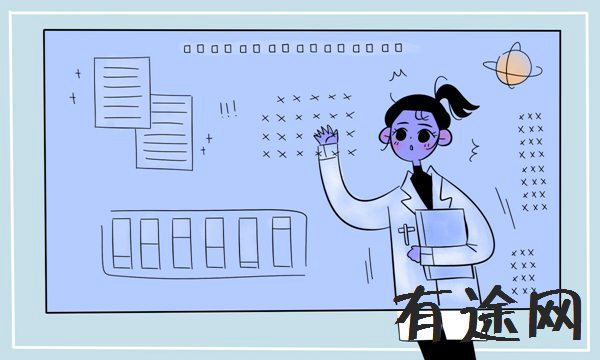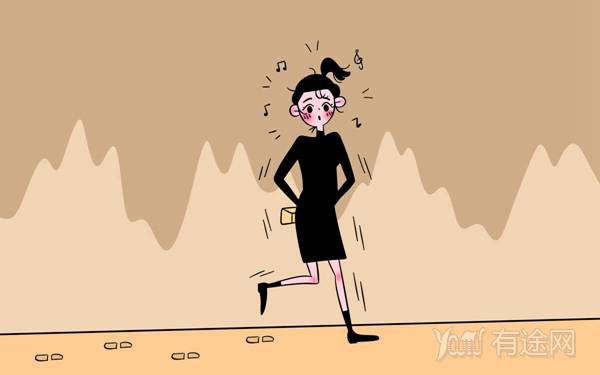为了帮助大家更好学习初二英语,提高英语成绩,小编为大家整理了初二上册英语必背的重点知识,供参考!

一. 形容词/副词的比较级和最高级
1. 形容词/副词的比较级和最高级的构成规则
(1)单音节词和少数以-er,-ow结尾的双音节单词,比较级在后面加-er,最高级在后面加-est。
① 单音节单词
small→smaller→smallest
short→shorter→shortest
tall→taller→tallest
great→greater→greatest
② 少数以-er,-ow结尾的双音节单词
clever→cleverer→cleverest
narrow→narrower→narrowest
(2)以不发音e结尾的单音节单词,比较级在原形后加-r,最高级在原级后加-st。
large→larger→largest
nice→nicer→nicest
able→abler→ablest
(3)以一个辅音字母结尾的闭音节(即:辅音+元音+辅音)单词中,先双写末尾的辅音字母,比较级加-er,最高级加-est。
big→bigger→biggest
hot→hotter→hottest
fat→fatter→fattest
(4)以“辅音字母+y”结尾的双音节词, 把y改为i,比较级加-er,最高级加-est。
easy→easier→easiest
heavy→heavier→heaviest
busy→busier→busiest
happy→happier→happiest
(5)其他双音节词和多音节词,比较级在前面加more,最高级在前面加most。
beautiful→more beautiful→most beautiful
different→more different→most different
easily→more easily→most easily
(6)有少数形容词、副词的比较级和最高级是不规则的,必须熟记。
good→better→best
well→better→best
bad→worse→worst
ill→worse→worst
old→older/elder→oldest/eldest
many/much→more→most
little→less→least
far →further/farther→ furthest/farthest
2. 形容词和副词比较级的用法
(1)“甲+be+(倍数)+形容词比较级+than+乙”表示“甲比乙…”或“甲比乙…几倍”。
Tom is taller than Kate.
汤姆比凯特高。
This room is three times bigger than that one.
这个房间比那个大三倍。
(2)“甲+实意动词+(倍数)+副词比较级+than+乙”表示“甲比乙…”或“甲比乙…几倍”。
I got up earlier than my mother this morning.
我今天早晨起床比我妈妈还早。
He runs three times faster than his brother.
他跑的速度比他弟弟快三倍。
3. 形容词和副词最高级的用法
(1)“主语+be+the+形容词最高级(+单数名词)+in/of...”表示“……是……中最……的”。
Tom is the tallest in his class./of all the students.
汤姆是他们班上/所有学生当中最高的。
This apple is the biggest of the five.
这个苹果是五个当中最大的。
(2)“主语+实意动词+(the)+副词最高级+in/of...”表示“……是……中最……的”。
I jump (the) farthest in my class.
我是我们班跳得最远的。
二. 句子成分
1.主语:句子所陈述的对象。
2.谓语:主语发出的动作。一般是有动作意义的动词。
3. 宾语:分为动词宾语和介词宾语,属于动作的承受者。
4. 系动词:表示状态或状态变化的动词,没有实际的动作意义。如 be, 感官系动词(look, sound, smell, taste 和 feel)、保持类系动词(keep, stay 和 remain)、状态变化类系动词(become、get、turn 和 go)等。
5. 表语:紧跟系动词后面的成分。
6. 定语:修饰名词或代词的成分。
7. 状语: 修饰形容词、副词、动词或句子的成分。
8. 补语:分为宾语补足语和主语补足语。是对宾语和主语的补充说明,与其有主动或被动的逻辑关系。
例如:You should keep the room clean and tidy.
你应该让屋子保持干净整洁。
(You是主语, should keep是谓语,the room是宾语,clean and tidy是宾语补足语。)
This kind of food tastes delicious.
这种食物吃起来很可口。
(This kind of food是主语, tastes是系动词, delicious是表语。)
注意:主语、谓语、宾语、系动词、表语、补语是一个句子的主干成分;定语和状语是一个句子的修饰性成分,不是主干成分。
三. 句子类型
1. 简单句的基本形式是由一个主语加一个谓语构成。
2. 复合句由一个主句和一个或一个以上的从句构成。
3. 两个或两个以上的简单句用并列连词连在一起构成的句子,叫做并列句,其基本结构是“简单句+并列连词+简单句”。
四. 简单句的五种基本句型
1.“主语 + 谓语”(即“主谓”句型)
例:They arrived in Harbin yesterday morning.
分析:“they”(主语)“arrived”(谓语)。
2.“主语 + 谓语 + 宾语”(即“主谓宾”句型)
例:I study English.
分析:“I”(主语)“study”(谓语动作)“English”(宾语即动作涉及的对象)。
3.“主语 + 谓语 + 间接宾语 + 直接宾语”(即“主谓双宾”句型)
例:Our teacher taught us English.
分析:“our teacher”(主语)“教”(谓语动作)“us”(间接宾语)“English”(直接宾语)。
4.“主语 + 谓语 + 宾语 + 宾语补足语”(即“主谓宾宾补”句型)
例: He asked her to go there.
分析:“he”(主语)“asked”(谓语动作)“her”(宾语即动作涉及的对象)“to go there”(补语—补充说明宾语做什么)。
5.“主语 + 系动词+ 表语”(即“主系表”句型)
常用的系动词有be, keep,lie, remain, stand, become, fall, get, go, grow, turn, look, feel, seem, smell, sound, taste, 等。
例: I am a teacher. 我是一名老师
分析:“I”(主语)“am”(系动词)“a teacher”(表语—即表明主语的身份)。
五. 宾语从句
1. 宾语从句的含义
在主句中做宾语的从句叫做宾语从句。
如:She knew that the teacher had seen the film.
她知道这位老师看过这部电影。
“that the teacher had seen the film”做 knew 的宾语,同时又是由连接词 that 引导的从句,所以它叫做宾语从句。
2. 宾语从句的分类
(1)动词宾语从句:顾名思义,它是位于动词后面的宾语从句。
如:He asked whose handwriting was the best in our class.他问我们班上谁的书法最好。
(2)介词宾语从句:顾名思义,它是位于介词后面的宾语从句。
如:I agree with what you said just now.我同意你刚才说的话。
(3)形容词宾语从句:顾名思义,它是位于形容词后面的宾语从句。
如:I am afraid that I will be late. 恐怕我要迟到了。
3. 引导名词性从句的连接词
(1)that:没有含义,在宾语从句中不做成分
(2)whether/if:表示是否,在宾语从句中不做成分。
I don't know if /whether he still lives here after so many years. 我不知道这么多年后,他是否还住在这里。
(3)连接代词:what, which, who, whom, whose(在宾语从句中做主、宾、表和定语)
连接副词:where, when, how, why(在宾语从句中做状语)
The small children don't know what is in their stockings.(what 在宾语从句中做主语)
这些小孩子不知道什么在他们的长筒袜里。
Could you tell me why you were late for the meeting this morning?(why 在宾语从句中做原因状语)
你能告诉我为什么你今天早上开会迟到吗?
4. 在做宾语从句的题目时应注意两点
(1)时态:
①当主句是现在时态时,宾语从句可以根据需要使用任何时态。
I don't know when he will come back.我不知道他将何时回来。
He tells me that his sister came back yesterday.他告诉我他姐姐昨天回来了。
②当主句是过去时态时,宾语从句必须是一种过去的时态。
She asked me if I knew whose pen it was.她问我是否知道这是谁的钢笔。
He said that he could finish his work before supper.他说他会在晚饭前完成工作。
③当表示客观事实或普遍真理的句子做宾语从句时,任何时候都用一般现在时。
The teacher said that the earth goes round the sun.老师说过地球绕着太阳转。
(2)语序:任何从句都使用陈述句语序,宾语从句当然也不例外。
重点句型:
一、 have fun doing sth.
【句型介绍】 意为\"做某事有乐趣\",其中have fun 相当于enjoy oneself,表示过得愉快。
1. 英语中的集体名词,如family, class, team等作主语时,若作为一个整体看,其后的谓语动词用单数;若强调其组成成员,谓语动词用复数。如:
My family is a happy one. 我家是个幸福的家庭。
My family are all watching TV. 我们全家人都在看电视。
2. 在比较级中,要注意than后面人称代词的格。
1)当句子中的谓语动词是不及物动词时,than后面的代词用主格还是宾格,在意思上通常没有区别。如:
He runs faster than I / me. 他跑得比我快。
They get to school earlier than we / us every day. 他们每天都比我们到校早。
2)当句中的谓语动词是及物动词时,than后面的人称代词用主格还是宾格在意思上就有差别了。试比较:
I like you more than he. (=I like you more than he likes you.) 我比他更喜欢你。
I like you more than him. (=I like you more than I like him.) 你和他相比,我更喜欢你。
二、 But I don\'t know what to do.
【句型介绍】 疑问词 + 不定式可作主语、宾语或表语。
I don\'t know how to get her help. 我不知道怎样才能得到她的帮助。
Where to buy this kind of seed is unknown to me. 我不知道去哪儿购买这种种子。
My question is when to leave for Tokyo. 我的问题是什么时候去东京。
三、 This is ... speaking.
【句型介绍】 该句为打电话用语,用来进行自我介绍,This代表我,speaking可以省去。
Hello! This is Tom (speaking). 你好,我是汤姆。
【句式比较】 Who is that (speaking)? 你是谁?that用来询问对方是谁,speaking可以省去。 Is that ... (speaking)? 你是......吗?that也用来询问对方是谁, speaking也可以省去。
重点短语:
一、 名词短语
a waste of time 浪费(白费)时间
field trip 野外旅游
the day after tomorrow后天
Terra Cotta Warriors 兵马俑
Thanksgiving Day 感恩节
on Mid-autumn Day / Festival 在中秋节
二、 动词短语
go fishing 去钓鱼
go boating 去划船
go hiking 去徒步旅行
go on a picnic 去野餐
trip over (被......)绊倒
hurry up 赶快
get home 回家
get together 相聚
agree with ... 同意......意见(想法);符合
ask for 请求;询问
come up 走近;发生;上来;流行
come over 过来;抓住
三、 介、副词短语
in the open air 在户外;在野外
on time 准时
at the front / back of 在前 / 后面
in front of 在......前面
in the country 在乡下
in town 在城里
on the left /right side 在左 / 右边
up and down 上上下下;来来回回
四、 其它短语
(not) ... any more再也不;不能再......
all the same 仍然; 还是
had better (do) 最好(做......)
八年级8-14单元重点句型
作者:郝昌明
一、I\'m sorry to hear that.
[句型介绍] 该句是对所听说的不幸事件的回答用语,含义为\"真遗憾;听到那件事我很难过\"。
-I didn\'t pass the exam. 我没通过这次考试。
-I\'m sorry to hear that. 真遗憾。
-My grandfather died yesterday. 我的祖父昨天去世了。
-I\'m sorry to hear that. 我很难过。
[知识拓展] 1. I\'m glad to hear that. 我真高兴听到那事。
-I have managed to buy a ticket for tonight\'s film. 我设法买到了今晚的电影票。
-I\'m (very) glad to hear that. 真替你高兴。
2. Congratulations. 恭喜你。
-I\'ve just married a beautiful girl. 我刚刚娶了一位漂亮姑娘。
-Congratulations. 恭喜你。
二、be good for
[句型介绍] 意为\"有益于......\", for后面接名词。
Is swimming good for your health?游泳有益于你的身体健康吗?
I think timely rain is good for the crops. 我认为适时地下雨对庄稼生长有好处。
[知识拓展] be good to 对......友好;be good at 擅长......
She is always good to me. 她对我一直很友好。
She is good at singing popular songs. 她擅长唱流行歌曲。
三、ask sb. for sth.
[句型介绍] 意为\"向某人要某物\",sb.与sth.位置不得颠倒。
Can I ask you for help?你能帮帮我吗?
To tell you the truth, when I have trouble, I always ask her for advice. 跟你说老实话,每当我有麻烦时总向她征求意见。
[知识拓展] ask for sth. 要求得到某物;ask for sb.要求见某人
Yesterday he asked me for money. 昨天他向我要钱。
Did anybody ask for me during my absence?我不在的时候有人找过我吗?
四、be born in
[句型介绍] 意为\"出生于\",后接地点状语或时间状语。
He was born in a small town in 1995. 1995年他出生于一个小镇上。
In which city was he born in 1988?1988年他出生在哪一个城市?
[知识拓展] be born of出生于......家庭
It is said that he was born of a teacher\'s family. 据说他出生于教师的家庭。
五、good luck with sth.
[句型介绍] 祝贺用语,with后面接事物名词。
Good luck with your exam. 祝你考试好运。
Good luck with your journey. 祝你旅途顺利。
[知识拓展] good luck to sb. 祝......好运
Good luck to you. 祝你好运。

想要合理的制定寒假计划,那就要了解初中生的寒假放假时间,下面是小编为大家整理的,仅供参考。

寒假将近,那么2022年中小学期末考试时间是什么时候呢,以下是小编整理的2020年各地区中小学期末考试时间相关内容,供您参考与阅读。

今年,继续推行将公办省级示范性高中公助生招生指标按照不低于80%的比例合理分配到区域内初中学校的招生改革,并适当向薄弱初中、农村初中倾斜。继...

2020年合肥中考成绩7月28日发布,7月28日上午10:30后,合肥市区中考学生可以查分。2020年合肥市区普通高中录取最低分数线为571...

2020年河南各地中考成绩查询时间不同!漯河中考成绩查询时间是2020年7月24日;郑州中考成绩查询时间是7月27日;信阳中考成绩查询时间是...

中考数学必考知识点有一元二次方程的基本概念、直角坐标系与点的位置、已知自变量的值求函数值、基本函数的概念及性质、数据的平均数中位数与众数、特...

2020年安徽各地区中考成绩查询日期不同,马鞍山中考成绩查询时间是8月3日、合肥中考成绩查询时间是7月28日、芜湖中考成绩查询时间是7月27...

2020年宜宾中考总分是840分,语文150分、数学150分、英语150分、生物和地理100分(同堂分卷);人文与社会140分。2020年中...

2020年中考成绩的总分各地不同,以江苏省为例,连云港中考总分是800分;盐城中考总分是750分;泰州中考总分是741分;无锡中考总分为53...

2021年河北各市区的中考成绩正在陆续公布中,部分市区公布成绩后也同步发布了一分一段表,以下是小编整理的相关信息,供参考。

中考一共分为多少科,每一科的分数线都是多少分呢,下面小编为大家提供中考各科的分数线是多少,仅供大家参考。

中考录取分数线是如何设置的?一般多少分的中考成绩可以考上高中?最低需要多少分可以考上高中?下有途网小编给大家整理了中考的分数要求,供参考!

暑假马上就要来临了,从幼儿园到大学的学生已经盼望已久了,下面小编为大家提供2021年暑假放假时间,希望对大家有所帮助。

2021年中考各省市的一中和重点中学的录取分数线是多少?下文有途网小编给大家整理了往年一中录取分数线,供参考!

填报中考志愿最重要的是“量分填报”。下面是小编整理的相关信息,一起去看一下吧,希望可以给大家带来参考与帮助!